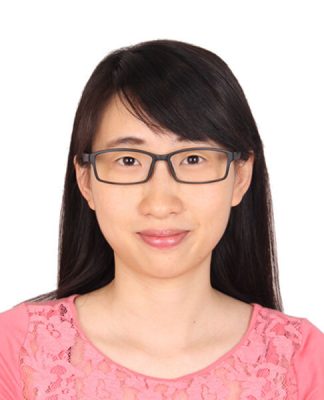Student Spotlight: Lin Ma

Lin Ma received her Ph.D. in Materials Science and Engineering in August 2016. She is currently a postdoc fellow at Berkeley Lab.
What is your area of research?
Advanced materials for energy storage systems.
What inspired you to choose this field of study?
I studied materials science, specifically polymer materials, at my undergrad institution, which is when I realized the importance of materials and got interested in designing materials with desired properties and applications. After I joined the Archer Research Group at Cornell for my Ph.D., I was exposed to energy storage systems, in which both materials science and electrochemistry play important roles. My research with the group focused on materials development of the components of lithium-sulfur (Li-S) batteries, including electrodes, electrolytes, and separators.
Why is this research important?
The rapid development of portable electronic devices has required the development of rechargeable batteries with higher specific capacity, improved safety, and longer lifetimes. The lithium-ion (Li-ion) battery is currently the most widely used battery on the market. However, the Li-ion battery has reached its theoretical energy density limit, so the next generation of rechargeable battery is in urgent demand.
The rechargeable Li-S battery is an attractive platform for high-energy, low-cost electrochemical energy storage due to the low cost of sulfur ($0.02/g) and the high theoretical energy density (2500 Wh/kg or 2800 Wh/L) of the sulfur cathode. Practical Li-S cells are limited by several fundamental issues, which derive from the complex solid-state and solution chemistry of the electrodes and electrolyte, such as the low conductivity of sulfur species, the dissolution and transport of long-chain lithium polysulfides (LiPS) into the electrolyte, and instability of the anode during recharge. My work is aimed at solving these issues, including sequestering LiPS by creating species in the cathode that bind specifically with LiPS, and protecting lithium metal anode, which is critical for the Li-S battery’s performance.
How has your background influenced your scholarship?
As an undergrad at Tsinghua University in Beijing I was making one-dimensional nanostructures via a soft template-based method. The ability to control the morphology (size, surface smoothness) of materials at a micro level led me to get interested in becoming a materials scientist. My undergrad thesis about azobenzene block copolymers, in which I studied the synthesis, phase behavior, and self-assembly of the polymers, further confirmed my interest in materials research.
What else has influenced your thinking as a researcher or scholar?
My advisors at Cornell and Tsinghua are excellent role models for me. Other scholars that I had the chance to meet or work with also influence my thinking as a researcher.
I understand you recently received a Materials Research Society (MRS) Graduate Student Gold Award for your oral presentation entitled “Molecular Engineering of High-Performance Lithium Sulfur Batteries.” Was this presentation a part of your overall dissertation research and focus?
This presentation introduces my overall dissertation and focus on cathode design in Li-S batteries.
What was the experience of presenting at an MRS meeting like?
I have been to three MRS meetings to give both poster and oral presentations. It is always a great meeting at which you can come across the most advanced research in materials science and more importantly, meet and talk to scholars (either big names or your peers).
Why did you choose Cornell to pursue your degree?
The Department of Materials Science and Engineering at Cornell University is one of the premier MSE programs internationally. The high-quality research and exceptional education at all levels made me decide to come to Cornell for my Ph.D. I was also really attracted to the beautiful campus!
Interview by Sally Kral, communications and outreach assistant in the Graduate School
